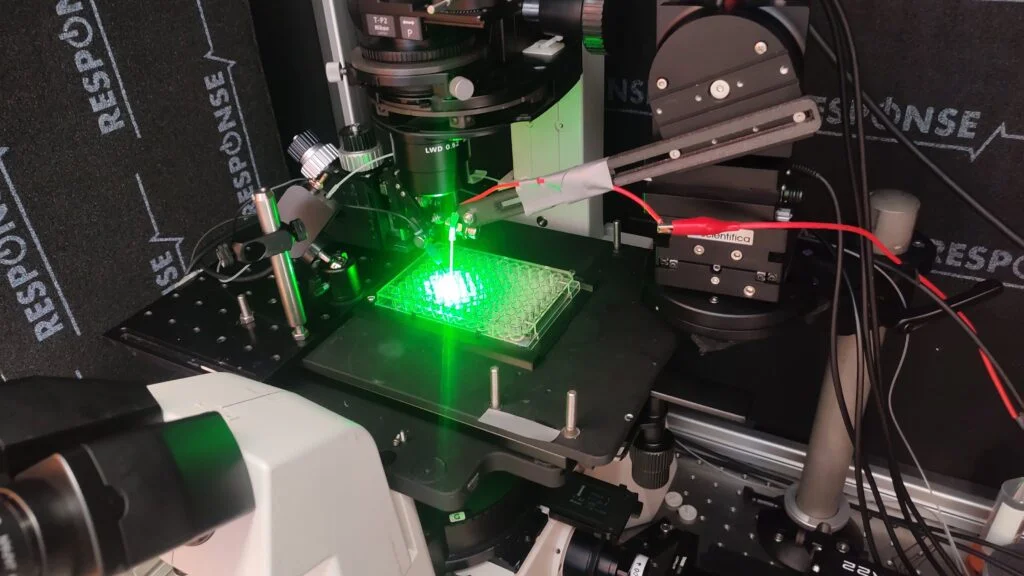Insider Brief
- The Institute for Quantum Physics at Universität Hamburg and the IT provider Lufthansa Industry Solutions are jointly developing quantum algorithms to optimize operations at airports.
- The team are collaborating on finding algorithms that solve the “airport gate assignment problem” at airport
- Critical Quote: “With 5 available gates and one airplane, there are only 5 assignment options. In this case, the flight manager has it easy. With 5 gates for 2 airplanes, there are still 25 options. Airports, however, are generally larger. With 15 gates and 10 airplanes, there are more than 570 billion possibilities.” — Dr. Joseph Doetsch
PRESS RELEASE — From basic research to everyday use: the Institute for Quantum Physics at Universität Hamburg and the IT provider Lufthansa Industry Solutions are jointly developing quantum algorithms to optimize operations at airports. The goal of this joint endeavor is to solve the so-called “airport gate assignment problem” at airports around the world.
The traveling salesperson problem is familiar to many from math: the more stops, the more difficult it becomes to find the best routes. Thanks to exponential growth in available routes, the problem is even bigger than it at first seems. The same principle applies to the “airport gate assignment problem,” which involves directing arriving planes to available gates.
A calculation makes the size of the problem clear: “With 5 available gates and one airplane, there are only 5 assignment options. In this case, the flight manager has it easy. With 5 gates for 2 airplanes, there are still 25 options. Airports, however, are generally larger. With 15 gates and 10 airplanes, there are more than 570 billion possibilities,” explains Dr. Joseph Doetsch, Quantum Computing Lead at Lufthansa Industry Solutions (LHIND).

Classic computers quickly reach their limits due the complexity of the calculations. For reasons of time management and efficiency, the best-possible plane allocations is vital to passengers and airlines alike. “So far, algorithms for combinatory optimization problems have been very hard to scale, so that calculation times increase disproportionately to the size of the problem. This makes real-time solutions, even for super computers, impossible for many practical uses in the industry. Instead, approximate solutions are, from a mathematical perspective, often the only method being used,” says Prof. Dr. Deiter Jaksch, quantum physicist at Universität Hamburg.
First of its kind in the world
To better solve the problem than in the past, Universität Hamburg and Lufthansa Industry Solutions have now launched a joint project. “We are working on a quantum algorithm that is scalable and takes into account all realistic boundary conditions at airports. The would make us the first in the world who are not using conventional computers for the airport gate assignment problem but rather quantum computers that should be much more suitable for the job,” says Jaksch.
The project partners are leaders in their respective fields. The IQP at Universität Hamburg has gained an outstanding international reputation for developing more efficient quantum algorithms. A Lufthansa subsidiary, LHIND is intimately familiar with the needs of airlines and airports and has spent years doing intensive work on quantum computing.
Because the quantum software is customized for the respective quantum computer architecture, hardware development also has to be taken into consideration. The first commercially usable quantum computers are now being introduced to the market successively. “Our airport gate assignment solution is already available and airports can use them to plan and manage in real time. Currently, it is based on classic computers and in the upcoming years it will improve further thanks to the use of quantum computers. We benefit from the large pool of talent in the city and Hamburg’s strong culture of funding,” says Doetsch.
The project will be funded for 3 years as part of the quantum computing initiative of the IFB Hamburg. The goal is to set up, establish, and strengthen Hamburg as a center of quantum computing.
Universität Hamburg and the Hamburg University of Technology (TUHH) are already working together in the Hamburg Quantum Computing School funded by the Federal Ministry of Education and Research. LHIND is also a founding member of Hamburg Quantum Innovation Capital (hqic), a central, cross-industry contact, coordinator, and ecosystem builder for quantum technologies.















